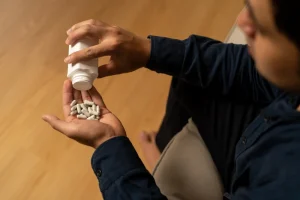
In particular, cognitive behavioral therapy (CBT) can help people overcome the fears and negative thinking that can trigger relapse. When a person with a substance use disorder relapses, they need to take similar steps. A severe relapse may require inpatient what to do after a relapse treatment, but outpatient therapy may be appropriate for some people. During treatment, clients will learn why they relapsed and take steps to prevent another relapse in the future. People in recovery from addiction may relapse for several reasons.
- If the relapse consisted of a few hours or a few days, you may be able to veer back to your recovery path somewhat seamlessly.
- Some people can overcome physical dependence to a drug without committing to living a healthy life in recovery.
- People with unhealthy coping habits may believe that using alcohol or other drugs is the only way to relieve stress.
- Good treatment programs plan ahead for the possibility by including relapse prevention as part of the process.
Sustaining Recovery After Relapse: Strategies for Consistency and Self-Care
Recovery routines and techniques help people feel comfortable in their sobriety and offer constructive outlets for excess energy. When we get too complacent or allow the ego to get too loud, we cut back on those protective layers. Soon after, the boredom, anxiety, restlessness, and other negative feelings set in, putting you at risk of relapse. But don’t fall into the trap of thinking that you’ve failed or that relapse somehow deletes your progress in treatment and recovery. Relapse is a normal part of recovery, and you can return to sobriety with support and self-compassion.
What is Alcoholic Relapse and What to Do After
- It is also necessary to know that they are not a sign of failure; they are inevitable.
- Attention to sleep and healthy eating is minimal, as is attention to emotions and including fun in one’s life.
- At All Points North, our in-person and virtual programs emphasize connection, both with caring therapists and supportive peer groups.
- Whether or not you should return to treatment will depend on the severity of your lapse and the circumstances surrounding it.
Being aware of the stages of relapse and having a plan to deal with them can help prevent you from using again. Follow these 10 techniques to help you stay on track with your recovery. Relapse occurs when a person returns to substance use after abstaining for a certain period. Often, the initial image of relapse you may imagine is when a person either in short– or long-term recovery starts drinking again. While this is true, much more goes into a relapse than just drinking or using substances again.
Take the Next Step…
- Despite having no intention of relapsing, experiences and triggers may cause negative emotions that increase the individual’s vulnerability to relapse.
- Going to a meeting and sharing your experience with others in recovery can help you remember that you are not alone.
- Friends and family members can recognize outward warning signs and try to intervene before a full relapse occurs.
- This will enable you to avoid these high-risk situations in future that prompt or trigger you to engage in destructive and addictive behaviors.
Engaging with friends, family, and professionals can provide encouragement and guidance essential for recovery. This is often seen as a “real” relapse and might seem like it came out of nowhere. However, in most cases, the signs were there long before you used again. Life might be messy or busy, and you start neglecting things like self-care and expressing your feelings. Or, you might end up skipping recovery meet-ups or not sharing as much as you used to. At this point, getting a family member or close friend to help could get you back on track.
Breaking the Relapse-Cycle With Addiction Relapse Prevention
If the relapse consisted of a few hours or a few days, you may be able to veer back to your recovery path somewhat seamlessly. If you went on a multiple week-long bender, another round of treatment may be in order. Just like every addiction story is different, so is the path to recovery. Some treatment providers and facilities offer aftercare services as part of the original treatment plan, or free counseling for a period following the initial treatment time. In addition to getting professional treatment, avoiding your triggers, finding social support, caring for yourself, and managing stress can help prevent future relapse. Participating in a recovery program and building a support network is essential to preventing relapse.
Warning Signs of Cocaine Abuse
For some, it’s familial stress or the effects of broken relationships. For others, it’s peer pressure at a party or a sudden bout of depression. There’s no one-size-fits-all approach to substance abuse recovery. Understanding that things like mental and physical health can significantly impact sobriety can help you learn to cope with your triggers now and in the future.


First, expressing sincere regret for past actions and demonstrating a commitment to recovery is essential. Open, honest communication and establishing https://ecosoberhouse.com/ healthy boundaries are foundational to rebuilding trust. Delays in doing so can compound the problem, and even prolong the relapse.
Because addiction is a chronic disease, the likelihood of relapse is high. Between 40 percent and 60 percent of people who undergo drug addiction treatment will relapse. The rate of relapse after treatment for alcohol abuse is around 90 percent. Whether or not you should return to treatment will depend on the severity of your lapse and the circumstances surrounding it.
Get Professional Help

High-risk situations can be physical and emotional, and a plan to manage these is vital. Strategies may include using substitutes for cravings, having mental and emotional resources at hand, and practicing self-care. After a relapse, individuals in recovery must revisit and potentially revise their recovery plan.
